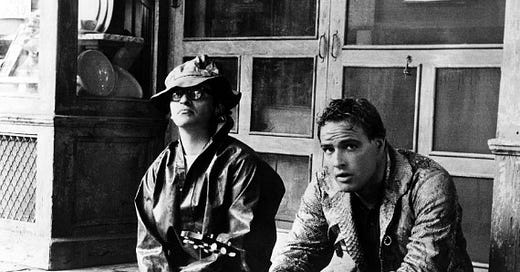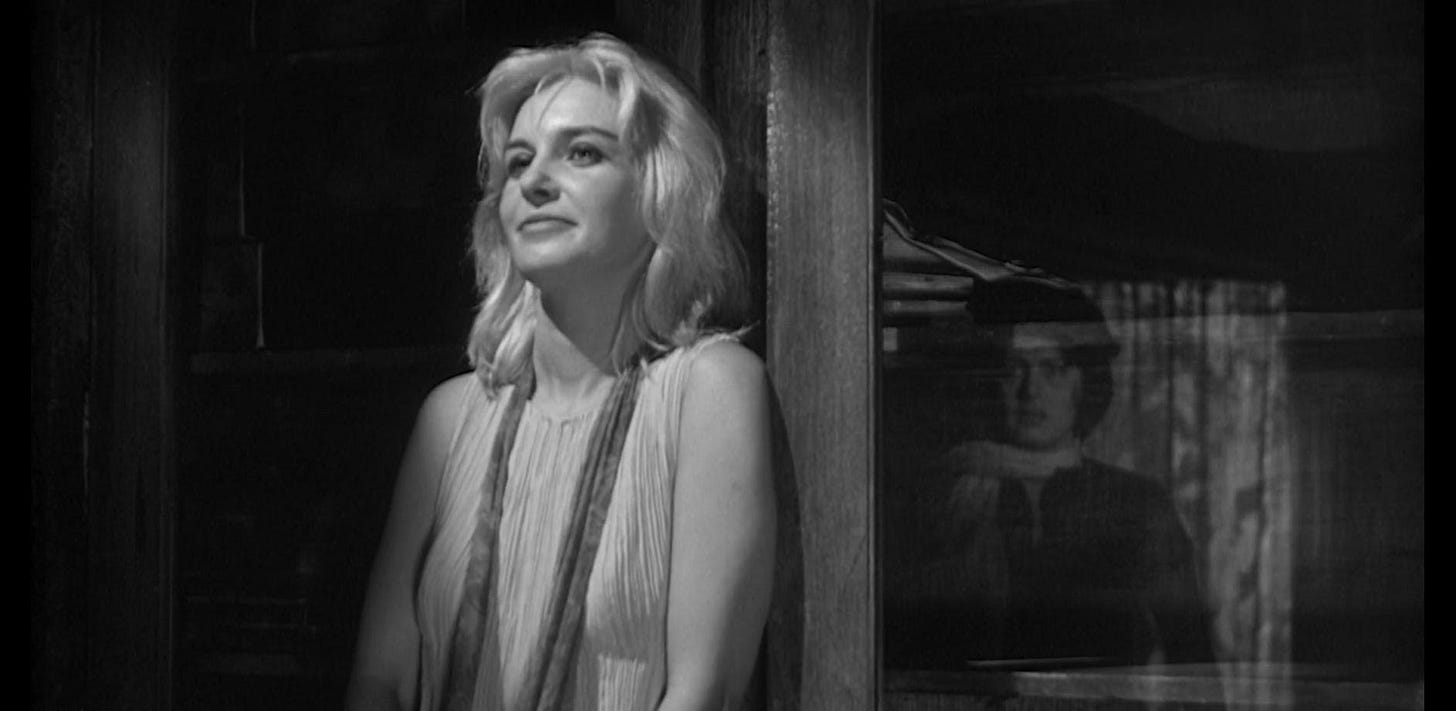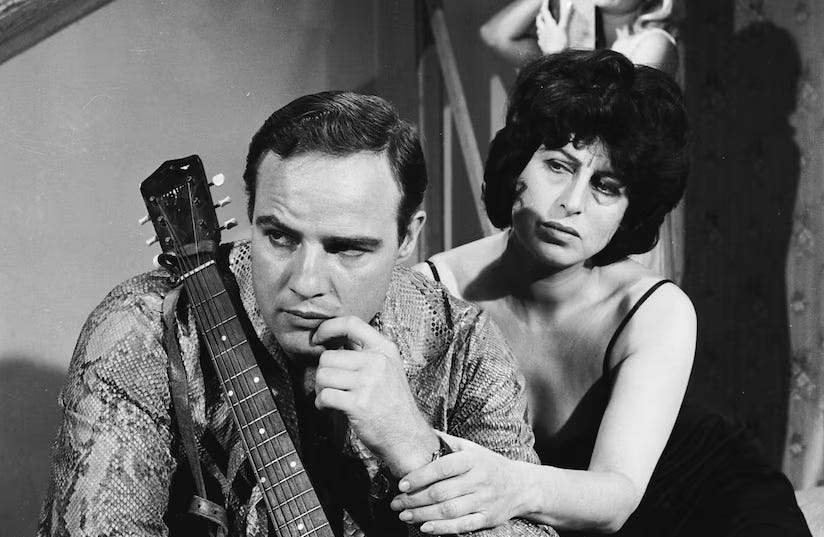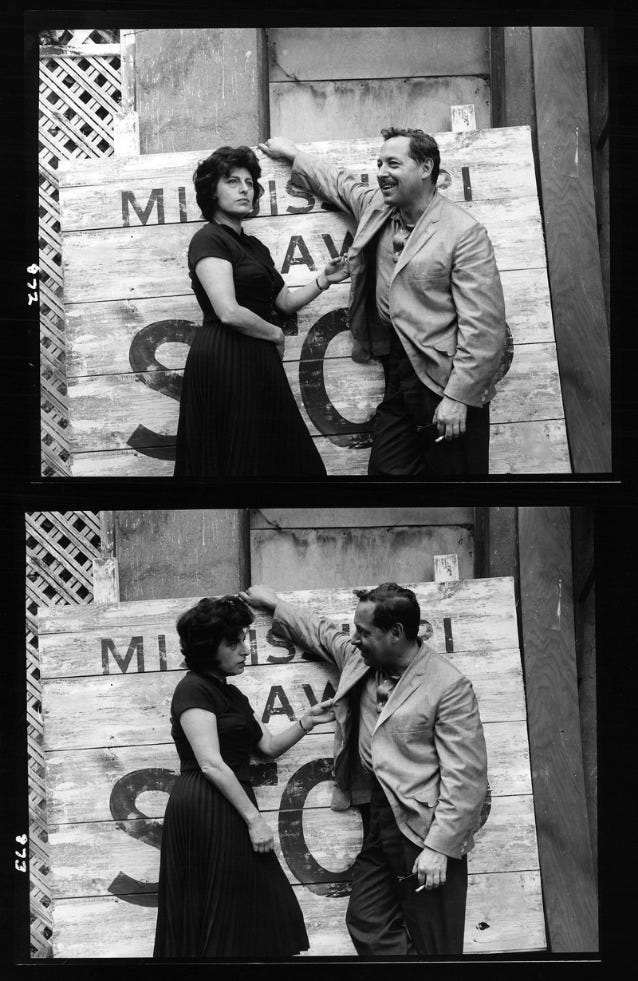I want to say one more thing about that film set, and about those people, before we go any further: The love and respect and admiration that was on that set was a lesson for me. I'm not saying that there weren't tense and unpleasant moments on that set. There were plenty of them; they occur on every set. The difference with this film is that Tennessee was often there, and Tennessee was consumed with gratitude--toward me, the cast, the crew, the world. He was already beginning to feel that his time was limited, his death was around the corner, his talents were disappearing. So he was so grateful--fulsomely so--to all of us for gathering together to make this film of his play. Tennessee also adored his actors. Joanne [Woodward] was his daughter, he told me, if he had ever had one. Joanne was smart and funny and sweet--a real divinity of a woman, as Tennessee put it. They became fast friends.
Tennessee thought Marlon and Magnani had been sculpted by the gods to act, to live, to seduce, so he stared at them in awe, and was delighted to be of service to them. And Maureen was his old shoe, as he called her: the person, the heart, the soul he could so comfortably slip into and find comfort. I have seen married people, deeply in love, who did not share the level of affection and trust and care that existed between Tennessee and Maureen. Maureen had played Lady on Broadway, and she was now in a supporting role--the role of Vee--and Magnani took on the lead. Something similar had occurred when Maureen originated the role of Serafina in The Rose Tattoo on the stage, and Magnani took the role on film. Maureen didn't care. That was life, those were the breaks. Who would deny Magnani the chance to act? We didn't know if Maureen would take the supporting role, but she accepted quickly. Yes, she needed the work, but she never lacked for work. She did it for Tennessee. She showed up for her friend.
So many things are possible when there is this level of respect, this high standard toward work, this honest affection. I'm not entirely proud of the film we know now as The Fugitive Kind, but we all, I believe, were working at our highest possible standard, and we were committed to each other. We were a group, a cell, a family.
I'm proud of that.
From an interview conducted by James Grissom in 1991
Initially posted on December 9, 2012.







